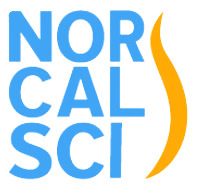Shoulder Preservation Workshop draws strong interest from SCI community
Kyle, standing 1st from the right, pictured with workshop participants
NorCal SCI co-founder, Nick Struthers, was on hand to watch a well-attended and successful Shoulder Preservation Workshop at the Timpany Center on April 24th, led by Kyle Smith, Owner and Founder of Orion Physical Therapy.
“It was good to see so many wheelchair users taking advantage of this workshop,” writes Nick. The Timpany Center is starting to develop momentum as the go-to place for wheelchair users to work out as it has a well-equipped gym with specialized adaptive equipment which made it ideal for the workshop. Kyle, who is a Certified Athletic Trainer (ATC) and a Propriceptive Neuromuscular Facilitation (PNF) 3b instructor, went over the basics of the shoulder anatomy and the diverse audience gained a better understanding on what a critical role the shoulder joint plays in mobility and how to best preserve the joint from overuse and injury by following specific guidelines.
He guided the participants by demonstrating good transfer techniques, correct posture and specific exercises to improve shoulder stability and integrity. In the audience were long-term wheelchair athletes and newly-injured with a wide range of injury levels along with Caregivers and Physical Therapists all taking away something from the Workshop which was hosted by NorCal SCI.
“I have got to give a big thank you to Kyle for leading the workshop and to Jenn Schachaner of the Timpany Center for making the facility available,” said Nick.
Phil executing a rotator cuff exercise
If you missed out on this session, don’t worry, NorCal SCI will be coordinating an evening session and will be making the instruction material available online in the near future.



